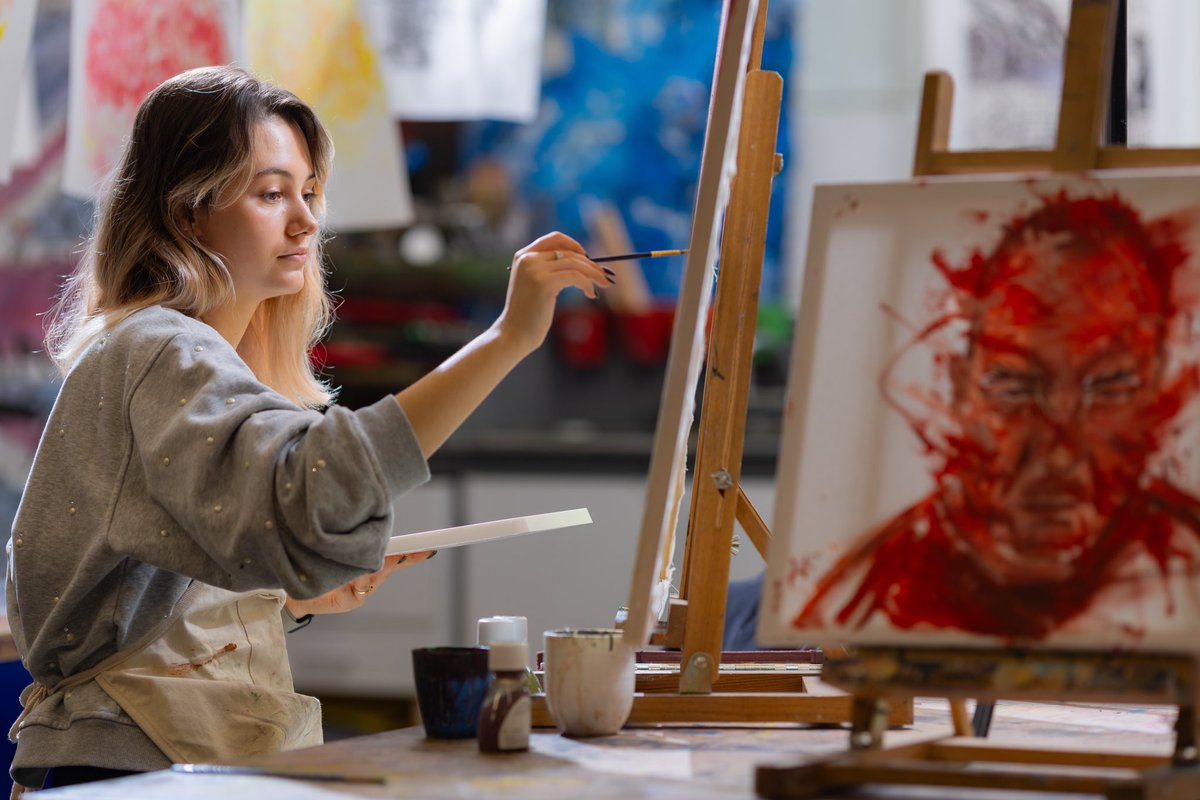History
History shapes us all. Every society has been moulded by its own history and has become what it is today as a result of every occurrence that has gone before. History spans all cultures, eras and environments and can be called upon for knowledge and insight into how the world arrived at the position it finds itself in today, and how it will continue to develop in the future. There are crucial lessons to be learned from history, and the History curriculum at Harris Academy Chafford Hundred has been carefully designed to acquaint students with pivotal events and individuals that are beyond the scope of their day-to-day experiences, therefore broadening their horizons and helping to shape them into productive global citizens. We aim to enable students to interpret news and global issues in their historical context and to make them aware of how cultural and national identities arise and are defined.
We endeavour to create enthusiastic historians who have enquiring minds, a strong sense of reasoning and a clear passion for the subject. The HACH History department consistently strives to ensure that all students have access to an ambitious and rigorous curriculum being exposed to powerful knowledge to become well-rounded historians with the careful mapping of knowledge and skills. The curriculum aims to develop a strong disciplinary knowledge of History where students can confidently interrogate the past and are able to discuss key historical concepts such as causation, continuity, change and significance with confidence and fluency. Students will become historians by investigating sources of evidence and becoming familiar with historical arguments through examining historical interpretations, a valuable skill that helps our students truly understand and interrogate what they read; vital qualities in a world filled with social media and an on-demand information sharing culture. Our students will be able to analyse the reliability of the information they choose to consume in the digital world, recognise the interpretations and opinions of others and make informed decisions based on evidence.
Moreover, the History curriculum nurtures an understanding of the British values of diversity, tolerance, equality and democracy that is developed through exciting and thoughtful enquiries of traditional topics within British History and through topics that move beyond the traditional canon of British History education.
We will explore the nature of power and authority, and how it impacts Britain and the world; we study the long, painful struggle for civil rights in Britain and other nations; we will scrutinise the inexorable rise of technology and its impact on how we live, work and go to war; we will study forms of extreme political ideology and the prejudices that often give rise to them.
Elements of local history will be woven into our curriculum to give students a sense of how their community links to national and global events. Students will also study part of the World War Two unit with a local history focus to explore the events and impact on Thurrock and the surrounding area. This provides students with the opportunity for a depth study in the British experience of war with a local stance including topics such as the Blitz, evacuation and how the local environment contributed to D-day success in 1944.
The History curriculum will produce young adults who not only are able to understand and interpret the world around them, but also possess a range of skills which are highly valued. No other subject develops the sophisticated ability to critically evaluate the utility of texts, extract relevant information from them, make links to other knowledge, and then present a reasoned argument. It is no wonder that History qualifications are valued in such fields as law, journalism, and administration, as well more obviously historical routes such as archaeology, museum curation and teaching.
Key Stage 3
The history curriculum at HACH follows a largely chronological approach to enable students to have a strong sense of contextual period, historical figures and events which encourages students to make strong connections across time periods and identify trends. Alongside this, students will pursue their study of History through a series of carefully designed enquiry questions intended to explore key events, and individuals, and their significance in a manner which allows them to make connections, draw comparisons and reach substantiated conclusions. The History curriculum at HACH aims to provide a rich breadth of experiences for our students, exploring the ‘silences’ left by often forgotten peoples and events. The importance of the retention of powerful knowledge is emphasised through low stakes quizzing both at the start and throughout every lesson.
Year 7
In Year 7, the overarching enquiry focus is ' How did the power of ancient and medieval rulers change between 600 and 1000AD?’ The curriculum is chronological and begins with a study of roman involvement in Britain, before moving on to study Medieval Baghdad, and then exploring the impact on Britain of the Norman Conquest, life and challenges to authority in Medieval England, a study of medieval Mali, the impact of the Henrician Reformation and the changes in Britain under subsequent Tudor monarchs. By the end of Year 7 students have been introduced to concepts of cause and consequence, change and continuity, and significance and have begun to develop their skills of source comprehension and analysis. They will also be introduced to historical interpretations of key events and individuals.
Year 8
Throughout Year 8, students develop their historical skills through the enquiry question of ‘How did the power of the people change 1640-1945?’ Students will learn about the causes of the Wars of the Three Kingdoms and the subsequent role of Oliver Cromwell as Lord Protector. They will then move on to investigate the witch hunts in Europe and USA, as well as the rise and abolition of the Trans- Atlantic slave trade. They will then follow this by considering impact of the French Revolution on British democracy and society. Following on from this, students will consider the impact of the Industrial Revolution and how it gave rise to demands for social reform, including suffrage movements. Students will also explore women’s history in the Victorian era. During Year 8, the topics studied will enable students continue to develop to their understanding of cause and consequence, change and significance. They will also continue to develop their confidence in using historical interpretations and combining it with their own knowledge.
Year 9
In Year 9 students continue their studies through the enquiry question ‘How did protest change the world in the 20th century?’ Students will consider how the twentieth century was shaped by the rise of new political ideologies – communism, fascism, globalism – and the challenges that they generated ranging from two world wars to genocides. By the end of Year 9, students will have developed their evaluation of sources and interpretations to understand how historical thinking has changed over time. Students will cement their understanding of key historical concepts through carefully crafted enquiries; for example, the causes and consequences of the First World War, and will also have learnt how to evaluate different interpretations of events and individuals, such as Margaret Thatcher. Students will learn how diverse communities were impacted by WW1 studying ‘often forgotten armies.’ In service of expanding students' personal development, they will study 1920S USA, society in post-revolution Russia and a post-war unit on the changing rights are freedoms in Britain which includes themes of culture, identity and challenging injustice.
By the end of the Key Stage 3 history curriculum at HACH, students will have obtained an accurate and broad understanding of the narrative of 2000 years of British history and how it links to significant global events. They will have a sound understanding of historical concepts in a range of contexts and will be confident in their handling of different sources and interpretations.
Key Stage 4
For those students choosing History as an option for GCSE, we will build upon the core knowledge and understanding of historical concepts developed at KS3 by exploring them further through a mixture of British and international studies. In Year 10 core knowledge and understanding of concepts such as change and continuity, covering a broad chronological framework are explored further, particularly through a thematic study of Crime and Punishment (c1000- present), developing students’ understanding of the complexities of different factors that led to change and key turning points in the development of methods of punishment and the nature of crime over time. A study of Weimar and Nazi Germany (c.1918-1939) allows students to develop their understanding of historical debate by analysing the relationship between evidence and interpretation, which will help them to understand why historians often disagree regarding the same event or individual. In Year 11 students study a British depth study of the reign of Henry VIII and his ministers (509-1540) and a study of International Relations and the Cold War (1941-1991). Through these differing studies students continue to embed a deep understanding historical concepts such as cause and consequence, change and continuity, similarity and difference, significance and historical narrative which were introduced at Key Stage 3. Moreover, the breadth of units studied at GCSE affords students a solid foundation in order to better understand the context of both Britain and the world today.
By the end of their studies at KS4 students will be able to formulate a sustained and logical argument, utilising historical evidence to support their conclusions. Furthermore, they will have embedded their understanding of second order concepts of cause, consequence, change, continuity, significance and be able to evaluate sources and historical interpretations.
Key Stage 5
Year 12
Students begin their A-Level course with a depth study of the German Democratic Republic. They also draw upon their knowledge acquired in KS4 around the Cold War and the developing tensions between the Communist and Capitalist world powers. Moreover, this course develops our students’ understanding of key historical second-order concepts, such as change/continuity and significance. Having mastered skills such as source evaluation and hypothesis testing by the end of KS4, students now apply these skills to more complex questions at A-Level where they are required to assess the validity of a range of contemporary sources. Alongside this, students also embark on a study of Russia (1917-1991) and through this will refine their understanding of core concepts learned at KS3 and KS4 such as government, politics, monarchy, and economy, as well as themes such as control of the people, social development and the significance of agricultural and industrial change.
Students will develop critical analysis of the causes and consequences of key events and be able to identify change and continuity across a range of themes. They will also develop their academic writing skills; by the end of Year 12 students will be able to articulate their knowledge in a structured and academic essay format. Having mastered skills such as source evaluation and hypothesis testing by the end of KS4, students will now apply these skills to more complex questions at A-Level where they are required to assess the validity of a range of contemporary sources.
Year 13
Upon progressing to the final year of KS5 study, students will complete a piece of coursework that accounts for 20% of their overall A Level. This enables the students to develop their research skills in preparation for any further study they may embark on post-18.
They will also embark on a study of ‘Rebellion and Disorder under the Tudors,’ which forms Paper 3 of their A Level. This paper refines the students’ understanding of early-modern England and utilises the skills developed in Y12. This paper is a breadth paper but with elements of depth study interwoven into the curriculum.
Regardless of their final grades, by the end of their History education our students have refined and deepened their knowledge of our powerful core concepts and developed and mastered a range of skills that prepare them for university, future careers and above all to be successful, happy and innovative citizens with much to offer society in their future life outside of education.























